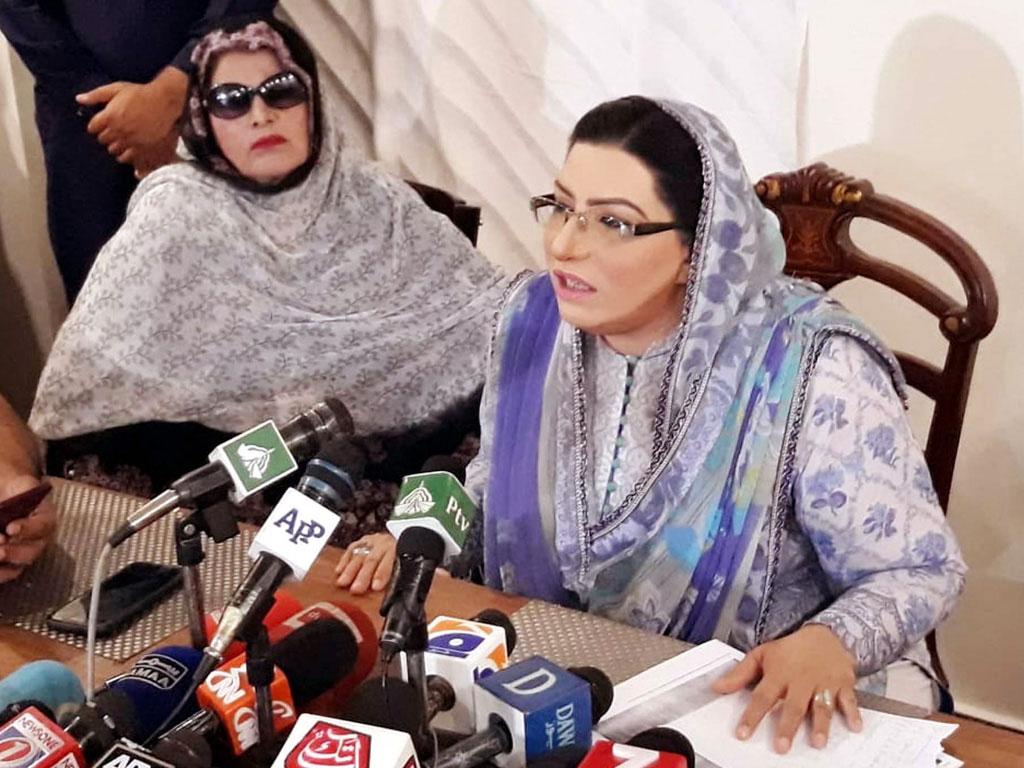
When a couple of months ago Special Assistant to the Prime Minister on Information and Broadcasting Dr Firdous Ashiq Awan announced the government decision to set up media courts, all stakeholders had condemned the proposal as an attack on media freedom. Yet the government has refused to listen. Last Tuesday, Awan announced that Prime Minister Imran Khan had ordered that "a bill envisaging formation of media tribunals be tabled in the current National Assembly session"; and that the government will discuss the matter with media organisations later. In other words, it would be presented to them as a fait accompli. Faced with an uproar from all stakeholders against this clear attempt to emasculate freedom of the media already subject to advisories and other arm-twisting methods, she reversed her statement and announced that all stakeholders will be taken on board before finalizing the final draft of the proposed legislation.
The proposed law, explained the special assistant, would deal with only media-related complaints and grievances, and help provide justice to the aggrieved parties within the shortest possible time. Media-specific legislation makes no sense considering that media persons neither demand nor receive any rights over and above the constitutionally stipulated freedom of expression. They are subject to the same laws that apply to private citizens. As for complaints involving willful slander, offenders can be held to account under the existing defamation laws that take care of publication or broadcast, without proof, of defamatory matter. Then there are the Press Council of Pakistan, Pakistan Electronic Media Regulatory Authority's Commission of Complaints, and Wage Board Implementation Tribunal to address journalists' grievances and also grievances against journalists/media, as well as some other forums for resolution of disputes and other issues of concern. There is no point, therefore, in introducing a new law unless it arises from an urge to muzzle increasing criticism of the government's unpopular and at times, flawed policies. It is sad that a democratically-elected government should resort to such devices to restrict freedom of expression. More so in view of the Imran Khan's own acknowledgement that he has been a beneficiary of independent media's growth, which helped him spread his message at a time his party did not have enough resources to mobilise public opinion in its favour.
As expected, representative bodies of the print and electronic media are preparing to fight for their rights. The Council of Pakistan Newspapers Editors (CPNE) in a statement said that the media is already going through tough times due to policies of the government and through this legislation it is trying to put more restrictions. The All Pakistan Newspapers Society (APNS) issued a statement on Wednesday, saying special courts aimed at intimidating and strangulating the media and freedom of expression are not only unconstitutional but also contrary to the spirit of democracy as envisaged in Prime Minister Imran Khan's 'New Pakistan' - or indeed in any democracy. The electronic media body, Pakistan Broadcasters Association (PBA), while rejecting the idea of media courts, termed it mala fide, discriminatory, and yet another effort to control media and restrict freedom of expression. Before things take an ugly turn, the Prime Minister needs to stop the move in it tracks. He and the country will be served better by letting the media do its duty.
